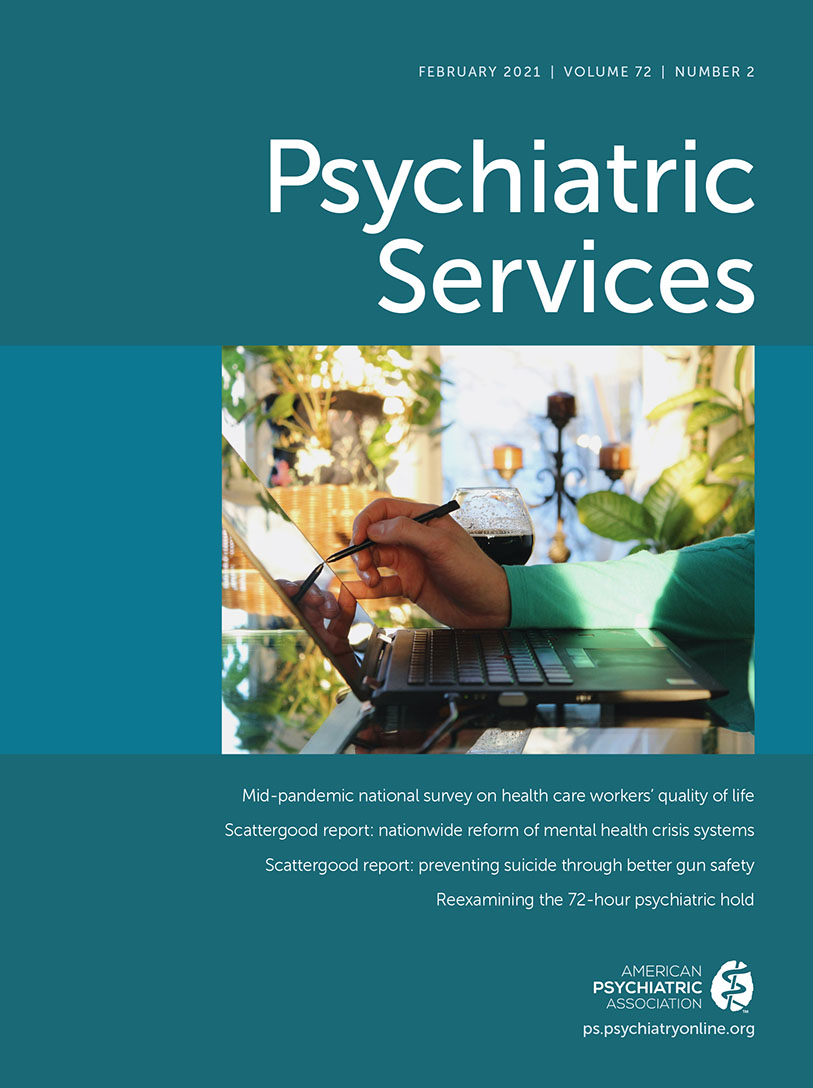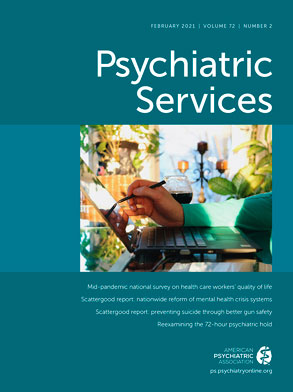This issue of
Psychiatric Services includes the article “New Opportunities to Improve Mental Health Crisis Systems,” which focuses on recommendations for federal, state, and local efforts to improve the U.S. system of care (
1). Drs. Hogan and Goldman include a summary of actions intended to shift systems toward providing timely access to high-quality care for persons experiencing a mental health crisis. Evidence of renewed support for a nationwide infrastructure capable of supporting care across the continuum is also discussed. The authors make a compelling argument that the moment presents a ripe opportunity to advance policy goals in favor of an organized mental health crisis system.
Perhaps the most important policy-making ingredient for addressing meaningful access to high-quality and comprehensive crisis systems of care is the inclusion of patients’ voices. As mental health professionals, we strive to practice patient-centered care in a collaborative manner, recognizing the importance of patients’ voices and choices in our practice. As mental health advocates, we must similarly craft policies and redesign systems in ways that are responsive to the perspectives and needs of those we serve. The empowering slogan “Nothing about us without us” captures a fundamental component of good policy making. Gaps identified across the continuum of crisis care represent opportunities to build the system of care from the ground up and craft a decision-making process that includes and welcomes those most affected by the system’s successes and failures—people with lived and learned experiences.
How might those with lived and learned experiences reimagine an adequate mental health crisis system, and how might it differ from what mental health professionals and policy makers currently consider to be a sound infrastructure? Although we have limited data from which to draw firm conclusions, we can describe two important points of tension in the desired makeup of the system of care. First, people who have experienced mental health crises have increasingly called for the removal of police officers from crisis call responses, citing limited training in nonviolent interventional skills and a failure to integrate crisis intervention teams into the larger behavioral health system of care. This systemic failure leads to mistrust, with many persons involved in a mental health crisis deciding to avoid contact with a crisis team for fear of police violence and/or a path to jail instead of to hospitalization. Second, the peer support specialist role represents a bridge between formal systems of care and community care and deserves stronger emphasis in system redesigns.
We can draw inspiration from the use of psychiatric advance directives and invite patients to state their preference for treatment ahead of a crisis. These documents not only support recovery but also provide an opportunity to ensure that our patients’ future treatment goals, particularly among those in crisis, align with their wishes. Keeping the patient at the center means more than just words in a policy statement or a patient-centered mission statement. The vision, leadership, and values of the institution also must be aligned with a patient-centered approach, with the patient’s voice, family, and community viewed as critical to treatment. Care must be collaborative, with patients and their families at the helm, guiding the team toward the optimal crisis response. Although these tenets may seem fundamental, they are often missing despite being key to stakeholder engagement dialogues and excellent care.
Additionally, policies and protocols should be transparent to the patients we serve. When thinking about transparency, we as mental health professionals and health care leaders must consistently challenge ourselves to consider who benefits from this, who is excluded, and whose voice we may have oppressed.
We stand at a precipice where many systems have an opportunity to be restructured, built, and challenged to include the patient at the center. We must remember the most important voice in the health care system belongs to the patient, who is the reason we are here.

